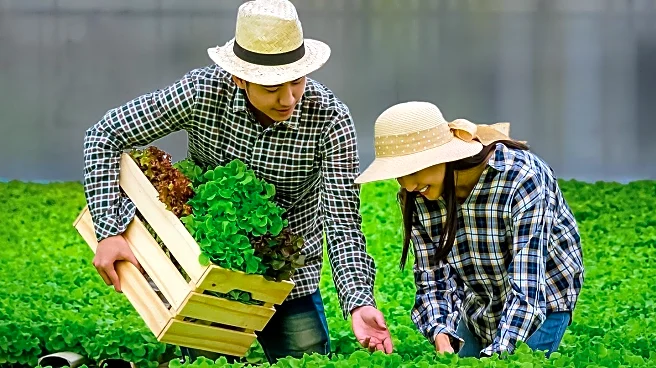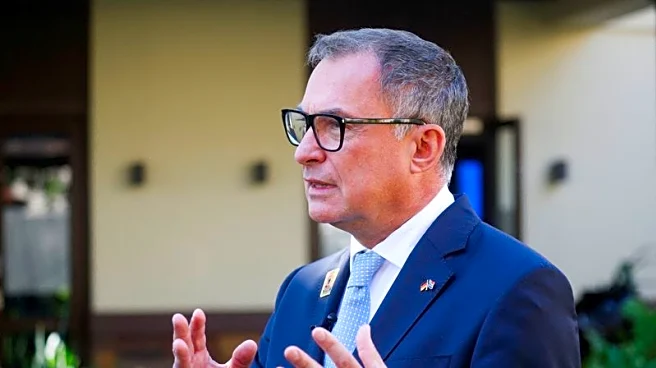What's Happening?
Dharma Realm Buddhist University is organizing a presentation on regenerative agriculture titled 'An Agri-culture for Regenerating Our Earth, Community, and Self.' Scheduled for August 25th at the Sudhana Center in Ukiah, the event will feature Dr. Craig Elevitch and Jamyang Dolma, co-creators of the Mama Food Forest in Hawai'i. The presentation aims to highlight the importance of indigenous knowledge and traditional practices in promoting earth regeneration, community strengthening, and personal well-being. Regenerative agriculture focuses on biodiversity, cooperation with natural systems, and sustainable abundance, offering an alternative to industrial farming models.
Why It's Important?
The event underscores the growing interest in regenerative agriculture as a sustainable farming practice that can address environmental degradation and community resilience. By emphasizing biodiversity and natural systems, regenerative agriculture presents a viable solution to the challenges posed by industrial farming, which often leads to soil depletion and ecological harm. The involvement of experts like Dr. Craig Elevitch and Jamyang Dolma highlights the potential for integrating traditional wisdom with modern practices to create resilient food systems. This approach not only benefits the environment but also empowers communities by fostering sustainable development and cultural preservation.
What's Next?
The presentation is expected to inspire further discussions and initiatives around regenerative agriculture within the community. Attendees may explore opportunities to implement these practices locally, potentially leading to collaborations between educational institutions, local governments, and community organizations. The event could also catalyze interest in similar talks and workshops, promoting broader awareness and adoption of sustainable agricultural practices.
Beyond the Headlines
The focus on regenerative agriculture also touches on ethical considerations regarding food production and environmental stewardship. By prioritizing ecological health and community well-being, this approach challenges conventional agricultural practices and encourages a shift towards more responsible and sustainable methods. The integration of indigenous knowledge further highlights the cultural dimensions of agriculture, advocating for a holistic understanding of food systems that respects traditional wisdom.










